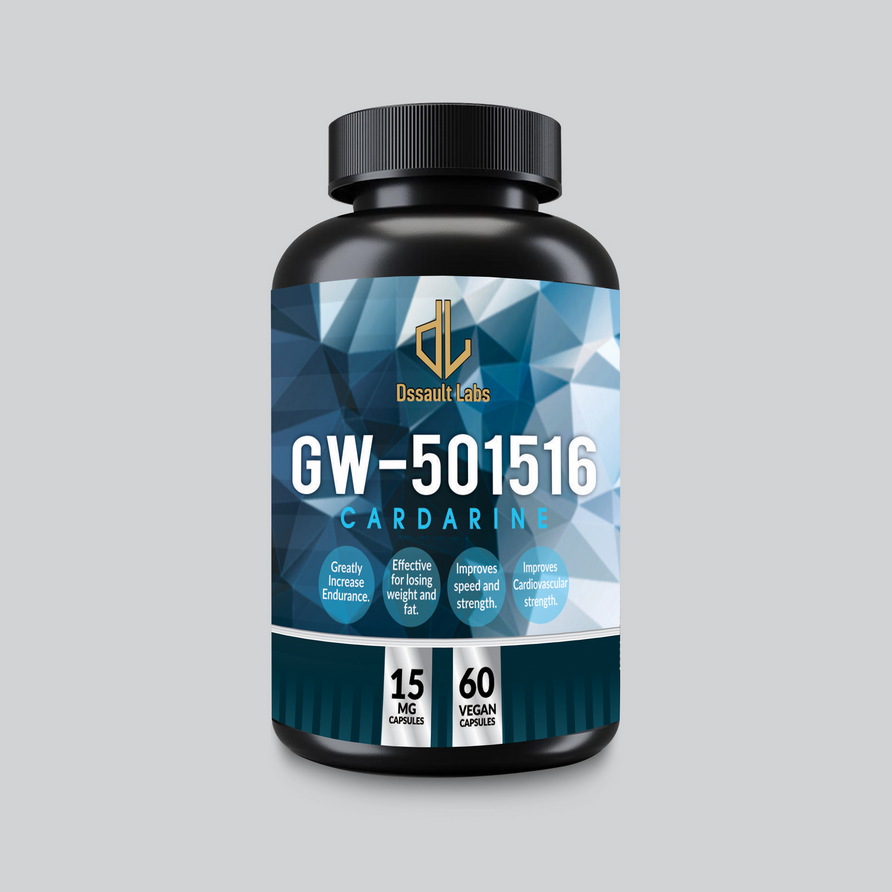$98.97
GW-501516 (Cardarine) is an experimental compound with potential benefits in enhancing endurance and promoting fat metabolism. However, it is crucial to emphasize that more research is needed to fully understand its safety, efficacy, and long-term effects in humans. As such, GW-501516 should only be used under the supervision of healthcare professionals in research settings, and it is not approved for medical use or sports enhancement purposes at this time. Individuals considering its use should carefully weigh the potential benefits and risks and seek appropriate medical advice.
GW-501516, also known as Cardarine or Endurobol, is a synthetic drug classified as a Peroxisome Proliferator-Activated Receptor delta (PPARδ) agonist. It has gained attention in the fitness and bodybuilding communities for its potential benefits in enhancing endurance and fat metabolism. Here’s a detailed overview based on current knowledge:
Mechanism of Action
GW-501516 works by activating the PPARδ receptor in the body. PPARδ receptors are found in various tissues, including muscle and adipose (fat) tissue. Activation of these receptors can have several physiological effects, including:
- Increased Endurance: GW-501516 is believed to enhance endurance performance by increasing the capacity of muscles to use oxygen. This effect is thought to be mediated through changes in gene expression related to mitochondrial function and energy metabolism.
- Enhanced Fat Burning: GW-501516 may promote fat metabolism by shifting the body’s energy usage from glucose to fatty acids. This can potentially lead to increased fat oxidation and reduction in body fat percentage.
Potential Uses
- Endurance Enhancement: GW-501516 is primarily researched for its potential to improve endurance and stamina, making it attractive for athletes and individuals involved in endurance sports.
- Fat Loss: Due to its ability to increase fat metabolism, GW-501516 has been studied for its potential role in promoting fat loss and improving body composition.
- Cardiovascular Health: Some research suggests that GW-501516 may have beneficial effects on cardiovascular health, including improved lipid profiles and potentially reducing inflammation.
Administration
GW-501516 is typically taken orally in the form of capsules or liquid solutions. It has a relatively long half-life, allowing for once-daily dosing in most cases. The dosage and duration of use may vary depending on the specific goals and individual response.
Side Effects and Considerations
While GW-501516 has shown promising effects in preclinical studies, its safety and efficacy in humans are not well-established. Potential side effects and considerations may include:
- Cancer Risk: Early studies in animal models raised concerns about the potential for GW-501516 to promote cancer growth, particularly in the liver. Further research is needed to clarify these risks in humans.
- Hormonal Effects: GW-501516 does not appear to directly affect hormone levels like testosterone or estrogen. However, its long-term effects on hormone-sensitive tissues require further investigation.
- Regulatory Status: GW-501516 is not approved for medical use by regulatory authorities and is considered a prohibited substance in sports and competitions. It is classified as an investigational compound and is only legally available for research purposes.
Reviews
There are no reviews yet.


Be the first to review “GW-501516”